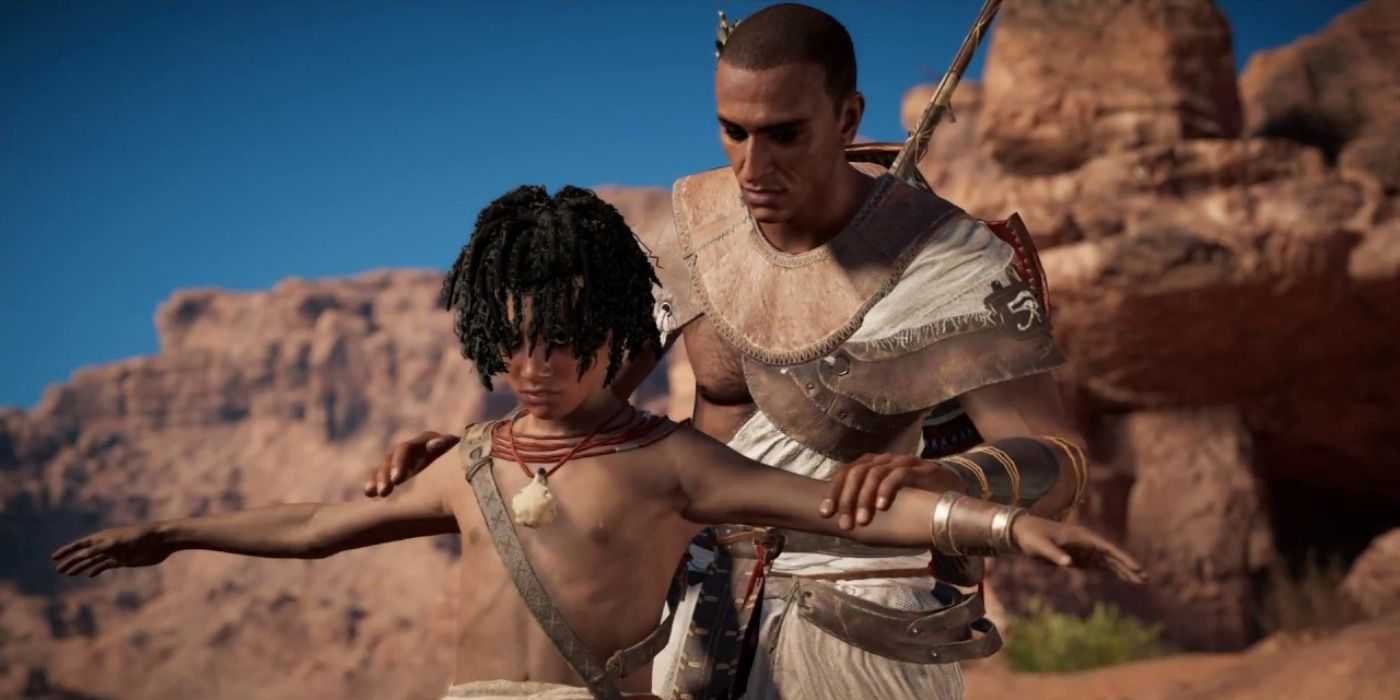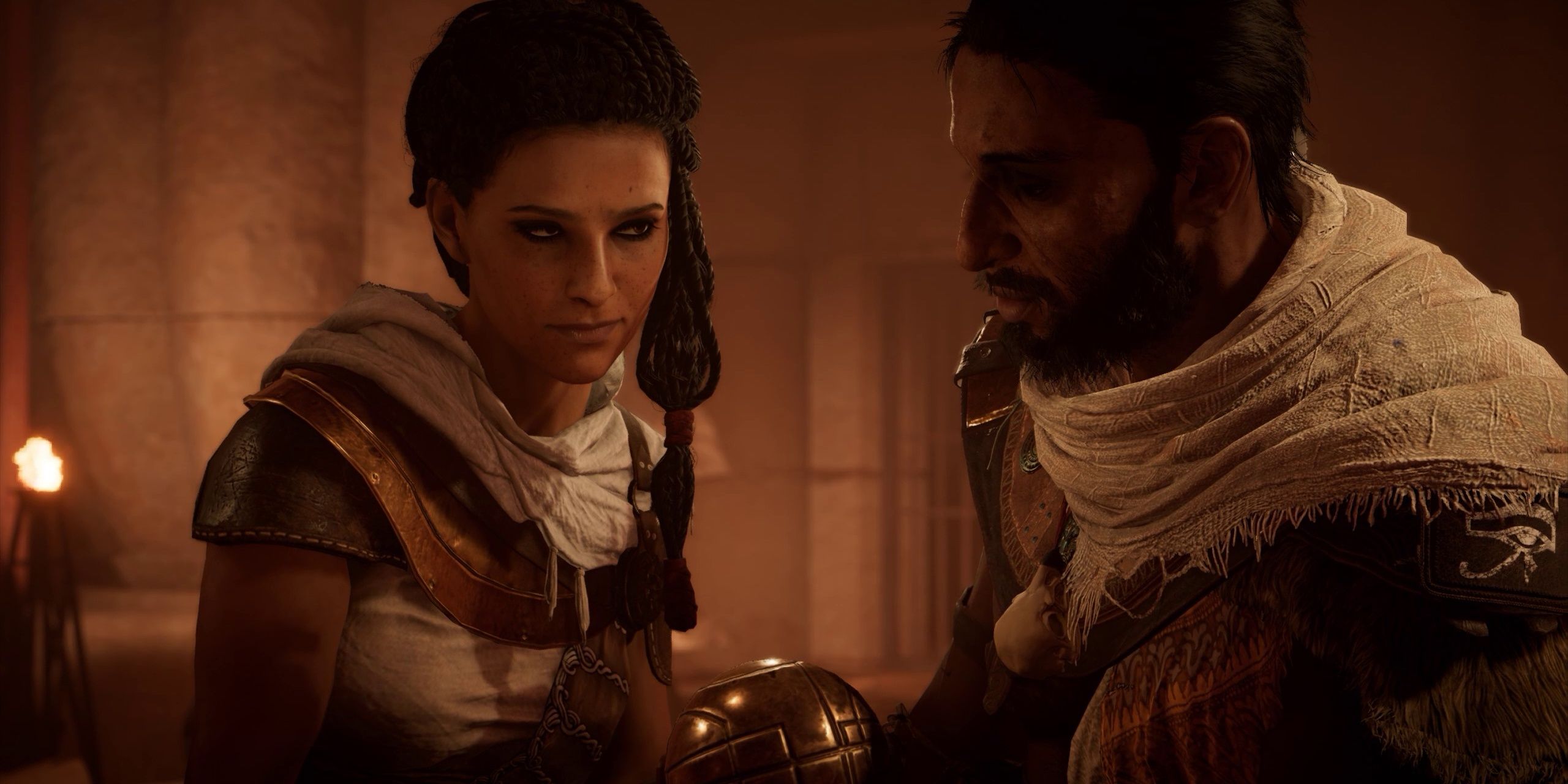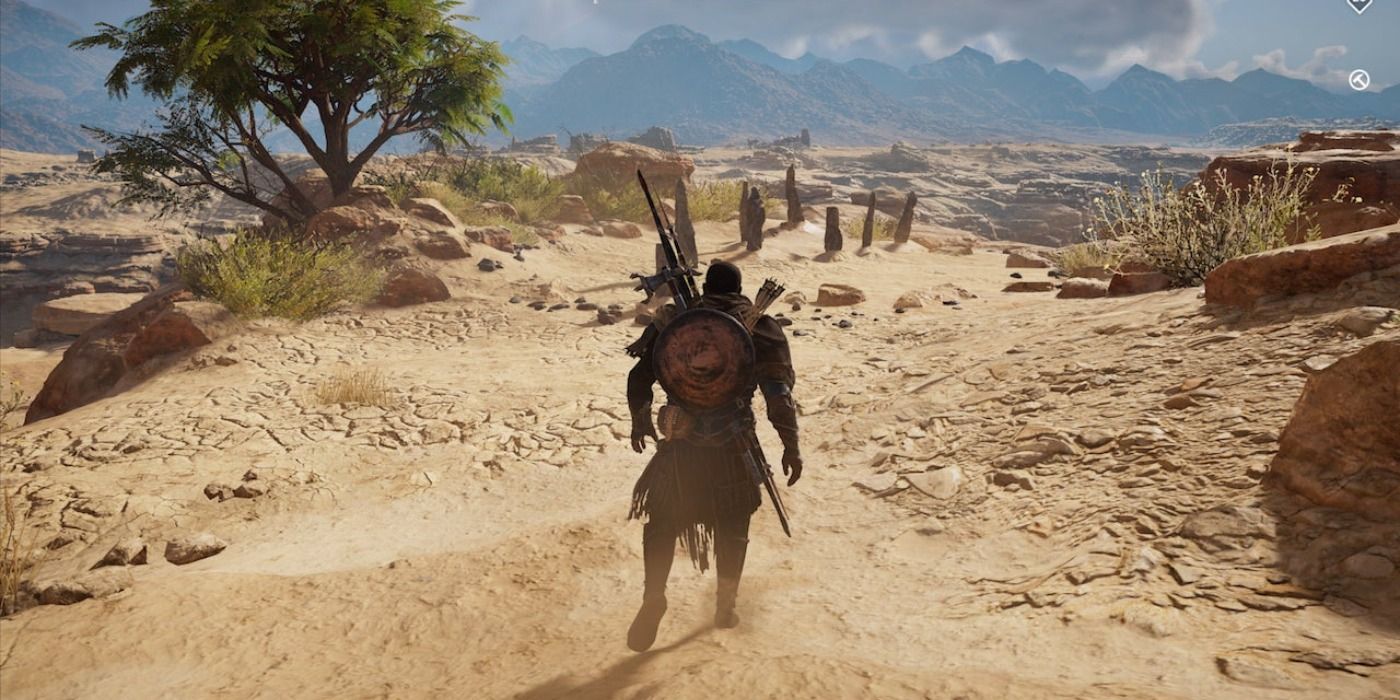Assassin’s Creed Origins took me by surprise. Firstly, it was the sights offered by its recreation of Ptolemaic Egypt. The way it opens, in that dusty yet lush oasis of Siwa, before unfolding to reveal landscapes of unexpectedly verdant valleys, wildflower meadows, and shimmering waterways.
Traversing the sun-swept streets of Alexandria, and crouching among the riverbank reeds will always be baked in my memory, especially with it being the first Assassin’s Creed I ever played. I still recall the amazement of how the map expanded further near the end to show you green Cyrene, a place that today makes up northeast Libya. It delighted in a way that Odyssey’s too-big and too-samey Ancient Greece doesn’t quite manage.
But as beautifully realised as the environments were, it was the story that really gripped me, hanging as it did off the broad and charismatic shoulders of Bayek of Siwa. He’s one of my favourite characters I’ve encountered. Not just in video games, but in all media. Firstly, his physicality is beautifully drawn, with his large, gentle eyes, strong hands, a deep rich voice, and a dome of a head. But it’s his temperament that truly shines.
As you progress through the game, you discover Bayek’s gentle humour, his great respect and fondness for children, his delight at the small things, and his utter abhorrence of injustice. His anger at any grievance is righteous and quick, yet controlled, like a fury born from a heart of boundless compassion. This compassion, too, is cut with great sadness: Bayek and his wife Aya lost their son Khemu who was killed in a struggle with members of the Templar Order.
Khemu’s spirit wanders throughout the game. You visit standing stones that link to constellations in the sky, and there are flashbacks to when Bayek teaches his son about the gods, history, and the lay of the land, gently imparting wisdom. It has a soulfulness you do not find so often in video games.
Then there is Aya, Bayek’s wife. Aya is a powerful woman and it’s easy to see why Bayek is so devoted to her. Possessing a ferocious character, Aya is more ambitious, more single-minded than her husband, and is equally adept as a fighter. They match well, and between their busy days as Medjay (Bayek is a sort of travelling protector of the people) and servant of exiled queen Cleopatra (Aya’s role), they occasionally find time to tryst.
There is one scene where we find them in a cave, their bodies sweaty after their exertions; Bayek and Aya sharing sweet and tender smiles. But running under this love are strong political currents. Aya is driven by vengeance, wanting to destroy her enemies, and is also taken by bigger ideas, latching onto Cleopatra as her mistress as a way to project her latent ambitions.
As the game progresses you see Bayek and Aya’s relationship falter as they steadily drift apart. It is clear that they still care and love each other a great deal, but their paths begin to diverge. Their bond and shared grief over Khemu simultaneously keeping them together yet slowly but surely driving them apart.
Origins surprised me with its emotionally charged moments. One of the most memorable concerns a young girl called Shadya. A sweet child seen often with her straw doll, Shadya likes to feed the fish, and Bayek is taken by her easy affection. But Shadya goes missing after getting embroiled in shady business. Swimming down to the murky depths to recover her body, since she was tied down underwater, and seeing her little figure floating among the drowned trees is an image I cannot easily forget.
Bayek softens when dealing with children, taking delight in their joyful innocence. He meets a young travelling salesboy, not much older than his son, but who seems to carry a wisdom far beyond his years, and another time a boy who possesses foresight and leadership much broader than his slim shoulders. Both times, Bayek does not condescend. He treats them as equals.
But always you sense a melancholy there, an obvious affection for children that’s undercut by a longing for his own child. Assassin’s Creed Origins goes places few other games do, and weaves in memorable moments in a tale of corruption, scandal, and political intrigue. But it is always the individual characters you meet and the moments shared with Bayek that settle longest in the memory.
In the deteriorating arc of Bayek’s relations with Aya, Origins also manages to say something profound about relationships. It’s a central dynamic that gives the whole thing heart, while also breaking it. Aya represents not only the unpredictable nature of love, but of human beings more generally. One cannot ever hope, or should seek to try, to control another person. Bayek accepts Aya leaving him, with a heavy acknowledgement, and ultimately he knows there can be no other way.
I can’t wait to play through Origins one more time… perhaps once that 60fps patch comes out I’ll be ready to step into the sand, the stars, the winds of Egypt once again.
Source: Read Full Article


.jpg)
